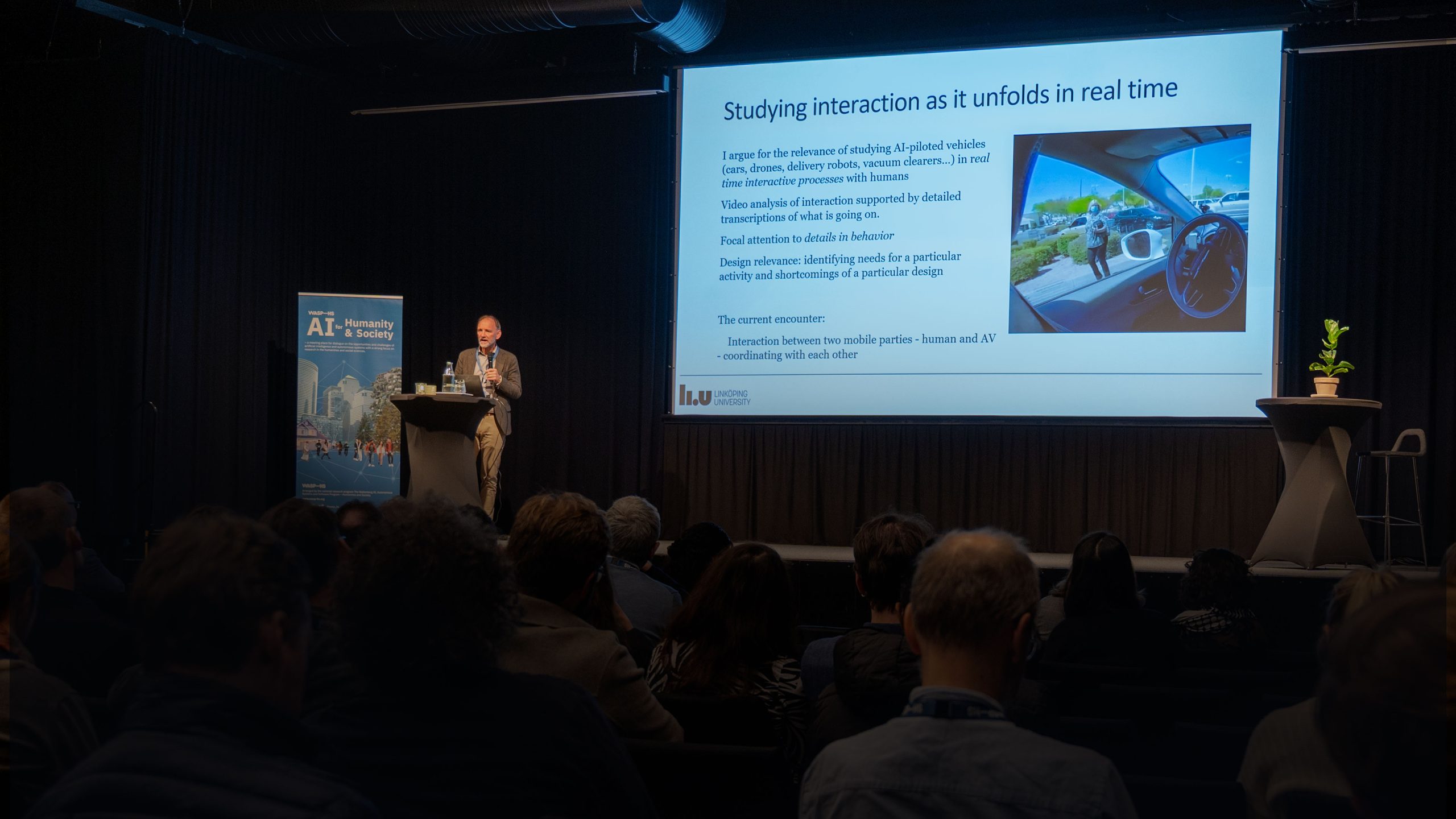Irene Kaklopoulou, PhD student in the intersection of interaction design and artificial intelligence with a focus on care, health and wellbeing, at Umeå University is sharing insights from the roundtable discussion “Charting the Future of Sustainable Health: Navigating AI, Digitized Bodies, and Care” at the event “AI, Sustainability and Agenda 2030.” The event took place online on October 4, 2023.
In a rapidly evolving digital landscape, the integration of AI technologies in healthcare holds immense promise for revolutionizing services for health and wellbeing. On the 4th of October, my colleagues and I had the opportunity to host a roundtable on sustainable health, AI, and digitalized bodies and care in the Swedish context. Pedro Sanches, Assistant Professor in Human-Centered Artificial Intelligence at Umeå University, and Teresa Almeida, Associate Professor in Human-Computer Interaction, facilitated the panel discussion on the future of sustainable healthcare. The roundtable discussions shed light on the multifaceted challenges and opportunities presented by the integration of AI in Swedish healthcare. By embracing interdisciplinary collaborations and incorporating sociotechnical considerations from design to implementation, we can forge a path towards equitable health outcomes for all members of society. The time to act is now, to ensure that the promise of AI is realized in a manner that leaves no one behind.
The discussions had three overarching themes which allowed us to navigate more sustainably the implications of AI in healthcare.
Digitized Bodies: Who is Left Behind?
As Sweden embraces digitalization in its health services, the specter of historical inequalities looms large. To counter this, AI-based technologies must be designed with the insight of underrepresented or marginalized groups. Nonetheless, it is equally crucial to scrutinize how these technologies are implemented within the healthcare system. Two vulnerable groups emerged as central concerns: older adults and individuals with disabilities. These groups, who rely disproportionately on health services, face a glaring lack of resources at the municipal level. The roundtable proposes an extension of previous recommendations to collaborate with clinicians in the design of AI systems, with a heightened urgency in strengthening local capacity to cater to marginalized groups. Furthermore, the impact of AI on Sustainable Development Goals (SDGs) must be assessed not only in terms of technological advancement but also in its on-the-ground implementation.
Health: From Individuals to Communities to Planet
The roundtable underscored the importance of evaluating the planetary implications of AI in health. Beyond its direct impact on individuals, AI’s influence extends to the environment through data centers and model training costs. A nuanced cost-benefit analysis is thus essential. Additionally, the discussion illuminated the implications of transferring AI-based decision-making authority from public authorities to private developers. This dynamic forms a new type of public-private. Issues of trust in AI necessitate examination at both social and political levels. Ultimately, AI should be viewed not only as a technology but as an infrastructure integral to broader sociotechnical considerations in healthcare system design and financing.
AI in Practice: From Care to Certification
Recognizing the potential of AI in clinical practices, the roundtable emphasized the importance of understanding the diverse care practices of clinical professionals. AI development must incorporate and respect this specificity, avoiding the risk of erasing vital local practices in the pursuit of scalability. The transparency and locality of technology development contribute to its perceived trustworthiness. However, the successful implementation of AI-based technologies hinges on reliable certification and audit processes. Currently, resources are insufficient to keep pace with the rapid technological changes, creating a pressing need for development at municipal or national levels. Healthcare researchers and professionals call for transparent and open processes to ensure trust in AI-based technologies.
A Call to Action: Multidisciplinary Collaborations for Equitable Health Outcomes
The roundtable concluded by emphasizing the urgency of interdisciplinary collaborations to promote fair and sustainable health outcomes through AI. Specific recommendations include:
- A Social-Scientific Oriented AI Lifecycle: This framework embeds social perspectives in the design and implementation processes, evaluating benefits and impacts while engaging diverse societal groups in ongoing democratic debates.
- Representation and Inclusion: Efforts must be made to include the perspectives of disabled and elderly individuals, preventing the perpetuation of historical inequalities in healthcare access.
- Focus on Practical Implementation: Shifting attention from invention to implementation is essential to ensure emerging technologies like AI-based systems are effectively integrated into healthcare practices.
- Investing in Local Competence: Addressing the dearth of focus and resources at the local level requires reinvestment and strengthening of national and municipal competencies to tackle emerging AI technologies.
- Policy Making in the Age of AI: As private actors increasingly implement AI-based decision-making, a paradigm shift in policy-making is underway. This necessitates careful consideration and reevaluation of responsibilities.
- Dynamic Standards and Certifications: Given the constantly evolving nature of software and data, new forms of ongoing, democratizing auditing and certification processes is crucial. Such processes ought to start with input from marginalized groups.






